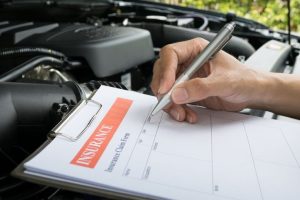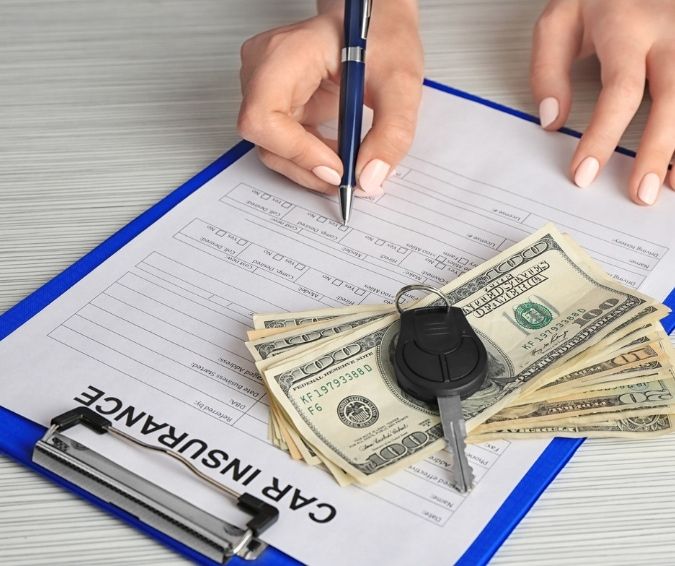How to Get the Most Money From Insurance for a Totaled Car
Getting the most money from insurance for a totaled car involves understanding the claims process, knowing your policy, and negotiating effectively. Here are some steps to maximize your insurance payout:
Review your policy:
Understand your insurance policy, especially the coverages and limits. Check if you have collision and comprehensive coverage, which are typically needed for car damage and theft.
Know your deductible, as you’ll be responsible for paying that amount before insurance coverage kicks in.
Document the damage:
Take photos and videos of the totaled car from different angles, highlighting the extent of the damage.
Collect any receipts or documentation for recent repairs, upgrades, or modifications to your vehicle.
Get an estimate:
Get an independent estimate from a trusted mechanic or body shop to assess the car’s pre-accident value. This can help you have a better idea of what your car was worth before the accident.
File a claim:
Contact your insurance company promptly to report the accident and file a claim.
Provide all the necessary information and documentation, including the police report if applicable.
Understand the car’s value:
Insurance companies use various methods to determine the value of your totaled car. The most common are Actual Cash Value (ACV), which considers depreciation, and Replacement Cost Value (RCV), which may be used for newer vehicles.
You can research your car’s value through resources like Kelley Blue Book, NADA, or other online valuation tools to have a general idea of its worth.
Negotiate with the insurance company:
Be prepared to negotiate with the insurance adjuster if you believe their initial offer is too low. Present evidence, such as your independent estimate or recent maintenance records, to support your claim.
Be respectful and professional during negotiations, but also assertive in defending your position.
Consider gap insurance:
If you owe more on your car loan than the insurance payout covers, gap insurance can help bridge the difference. Check if you have this coverage.
Be aware of your rights:
Familiarize yourself with your state’s laws and regulations regarding insurance claims and the total loss threshold.
Seek legal advice if necessary:
If you believe you’re not being treated fairly or your claim isn’t being handled properly, you may want to consult with an attorney experienced in insurance claims.
Accept the settlement:
Once you and the insurance company reach an agreement, you can accept the settlement. Make sure you receive the payment promptly and follow the proper steps for transferring ownership of the totaled car to the insurance company.
Understanding Total Loss in Car Insurance
First, it’s essential to comprehend what “total loss” means in the context of car insurance. A car is declared a total loss when the cost to repair it exceeds its actual cash value. This is a critical concept to grasp as it forms the basis for your insurance payout.
Determining the Actual Cash Value
Your insurance company will typically determine the actual cash value (ACV) of your car before the accident. ACV is the market value of your vehicle, taking into account factors like make, model, age, and condition. Understanding how this value is calculated is crucial as it directly influences your settlement.
Documenting the Damage
To maximize your insurance payout, you should meticulously document the damage to your car. This includes taking clear photographs, collecting repair estimates, and providing any other relevant evidence to support your claim. For more interesting information visit our website generalquests.com
Dealing with Your Insurance Company
Communication with your insurance company is key. You’ll need to report the accident promptly and provide all the necessary information. Knowing how to communicate effectively can help speed up the process and improve your chances of a fair payout.
Negotiating the Settlement
Insurance companies may offer an initial settlement, but it’s often negotiable. Knowing how to negotiate effectively is a valuable skill in securing the best possible compensation for your totaled car.

Getting a Second Opinion
If you’re not satisfied with your insurance company’s offer, consider seeking a second opinion. This can involve consulting with an independent appraiser or seeking advice from a legal expert. A fresh perspective can reveal opportunities for a larger payout.
Understanding Salvage Value
Salvage value is the worth of your car’s remains once it’s deemed a total loss. Knowing how this value is determined and how it affects your settlement can be advantageous in your negotiations.
Considering Gap Insurance
If you have gap insurance, it can cover the difference between your car’s ACV and what you owe on a loan or lease. Understanding the role of gap insurance can help you secure additional compensation.
Expediting the Process
Time is of the essence when dealing with a totaled car. Learn how to expedite the claims process to minimize inconvenience and financial strain.
Seeking Legal Advice
In complex cases, involving a legal expert can be beneficial. Understand when it’s necessary to seek legal advice to protect your rights and secure a fair insurance payout.

Additional Tips for Maximizing Your Insurance Payout
Explore additional tips and strategies that can help you maximize your insurance payout, including the role of deductibles and leveraging your policy’s features.
The Role of Deductibles
Deductibles play a crucial role in insurance claims. Learn how they impact your payout and how to use them to your advantage.
Conclusion
In conclusion, getting the most money from insurance for a totaled car is possible with the right approach. By understanding the process, effectively communicating with your insurance company, and exploring all available options, you can ensure a fair and satisfactory settlement.
FAQs
- What does “total loss” mean in car insurance?
Total loss in car insurance refers to a situation where the cost of repairing a damaged vehicle exceeds its actual cash value (ACV).
- How is the actual cash value (ACV) of a car determined?
ACV is determined based on various factors, including the make, model, age, and condition of the vehicle, as well as local market conditions.
- Can I negotiate the insurance settlement for my totaled car?
Yes, insurance settlements are often negotiable. You can negotiate with your insurance company to achieve a better payout.
- When should I consider seeking legal advice for my total car insurance claim?
Legal advice may be necessary in complex cases or when disputes arise with your insurance company over the settlement.
- What is gap insurance, and how does it work in maximizing insurance payouts?
Gap insurance covers the difference between your car’s ACV and the amount you owe on a loan or lease, providing additional financial protection in the event of a total loss.







